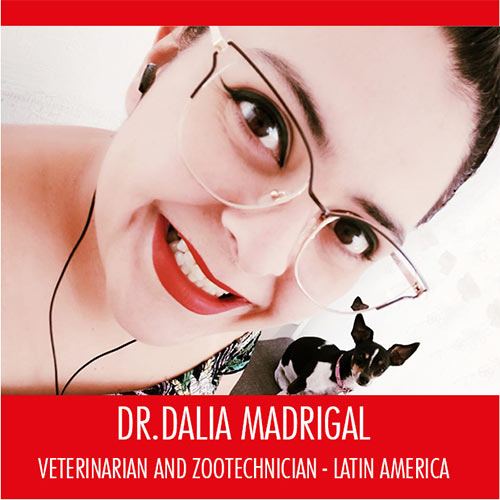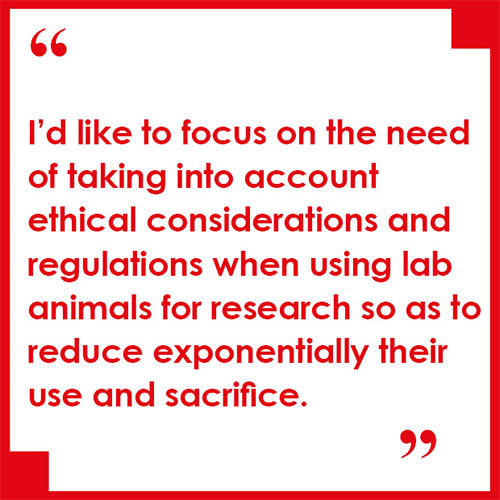
The current version of the Tecniplast website doesn't match your region. Please visit your local website to find information and offerings specific to your country.

The current version of the Tecniplast website doesn't match your region. Please visit your local website to find information and offerings specific to your country.

Virtual meetings: the important contribution to improve the responsible use of animals in laboratory and to promote all the good practices during procedures

Dr. Dalia Madrigal, veterinarian and zootechnician, in June 2021 was the main organizer of a series of virtual meetings that gathered the greater part of the Mexican Lab Animal Science community.
What were the ideas and goals that brought you to the organization of such an event?
Working in the world of lab animals in an educational institution such as the University of Guadalajara, I’ve faced a lot of challenges, the most important one being related to the need of working on the education of students and professionals in the field of lab animal science.
I could observe that students and researchers-professors as well were lacking a lot of basic concepts required to work with lab animals, so I decided to create a theoretical-practical course that the participants, at that moment exclusively members of my alma mater’s university network, could benefit from.
I realized that there were many shortcomings in the community, and that it was not just my institution in need of help but also many others inside my country and in Latin America.
Starting from all these experiences and understanding that all experience is enriching for each of us, it was decided to give free courses, with committed professionals as professors and, to open them to anyone with genuine interest in these topics.
Which scientific topics are the most interesting within the Mexican institutions?
I could identify some matters of major interest paying attention to the topics we addressed in the course:
Lab animals as experimental model, The 3 R’s, Regulations in Laboratories, Internatonal regulation, Environmental enrichment for lab animals, Euthanasia and criteria of end point of lab animals, Ways of inoculation in different species based on national regulations, Basic principles of sample collection and necropsy of lab animals, Tools for the presentation of an investigation protocol before the CICUAL.
Have you worked alone in the preparation of the course or did you get the help of colleagues or professionals from any Mexican or International institution?
I’ve had the great luck of working with partners with a great experience in the field of lab animals. They have been an undeniably important help, necessary for the good development of this project. They work with lab animals in Mexico or other countries.

Where do you see this initiative going in the near future?
I’d like to focus on the need of taking into account ethical considerations and regulations when using lab animals for research so as to reduce exponentially their use and sacrifice. in a few words, to encourage refinement. This project started as an initiative with local goals and it then became a multi-disciplinary and multi-institutional project that aims at going on and at improving in the coming years, thanks to the involvement of more and more professionals.
In which field, do you think, the Mexican community should seek more improvements?
In our country it is necessary to strengthen some important areas and in order to do so I think it is important to work together to achieve the goals set, to modify the existing ones so as to improve them and dismiss those that are useless. The areas that to me require important improvements are education, both of professionals and of the public in general, the field of regulations, intended as national regulations and their relation with the use of lab animals.
How much and in what way has covid affected your operations and those of your institution?
In the specific case of our course, we had to adapt it to the online mode and to eliminate the practical part even if it was originally conceived of as a theoretical - practical course.
MASSIMO FERRARI - CORPORATE SALES MANAGER – AMERICAS – TECNIPLAST S.P.A.